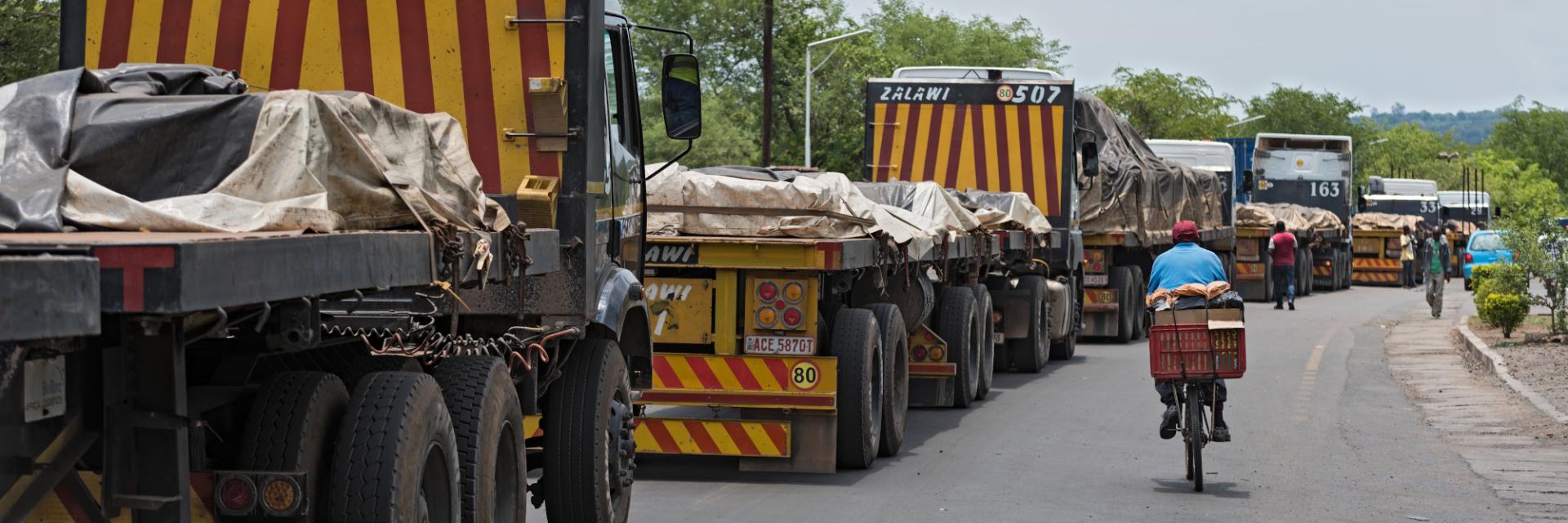Tangier, 26 October 2022 (ECA): Regional integration and trade experts convened by ECA at the ongoing AU Tangier Policy Conference have concluded that trade, industrialization and infrastructure are critical to peace and security in Africa and that the freedom of movement of people within Africa will cement AfCFTA and deepen regional integration, peace and security of the continent.
That was the overarching message of the panel discussion organized by the UN Economic Commission for Africa (ECA) on the second day of the ongoing AU Policy Conference themed “Promoting the Peace, Security, and Development Nexus: The Promise of Regional Integration”, which is being held from 25 to 27 October, in Tangier, Morocco.
The Director of ECA’s Regional Integration and Trade Division, Stephen Karingi who was the keynote speaker, said that peace and security could not be divorced from the dividends of regional integration since generally, a well-integrated continent is one which is likely to enjoy relative peace and stability.
“While the AfCFTA promises broader and deeper economic and regional integration,” Karingi noted “however, the benefits can only be achieved if we open our borders. Maroc Telecom should easily be able to open shop in Nairobi just as a Kenyan enterprise can do same in Gaborone. When we move across borders, understanding is promoted, peace is enhanced and trade increase.”
Enumerating the numerous benefits of free movement of persons linked to trade, infrastructure and industrialization, Karingi underscored that the benefits seem to have been overshadowed by concerns about the dangers of open borders, such as insecurity and health, and the fears about the potential erosion of sovereignty, among others.
He challenged the panel to assess the factors inhibiting the ratification of free movement of persons protocol in Africa and the concerns of countries that have accounted for its slow ratification.
Other panelists also concurred that the free movement of people is a prerequisite for the optimization of trade, infrastructure and the AfCFTA, thus leading to peace and security.
On her part, Angela Strachan, ECA Consultant in Business Environment, Trade Facilitation and Investment Climate presented the findings of an ECA study, which explores the contribution of trade in the transitions from fragile, unstable and emergency contexts to sustainable development within the framework of the triple humanitarian-development-peace nexus.
According to the study, the number of people accessing the benefits of the African Union Protocol on Free Movement of Persons in Africa could increase as conflict and disaster events push people to seek work and residence in other territories.
In the same vein, Itumeeng Dlamini, Technical Advisor to the CEO on Corporate Governance at the African Peer Review Mechanism (APRM) spoke about the role of women and youth in trade as valuable partners in the private sector in accelerating regional integration.
“Women in trade must also be paid close attention to, as they primarily operate in the informal economy and risk being excluded from the benefits of AfCFTA,” Dlamini said.
Prof. Babafemi Badejo, lead consultant for an ECA-commissioned study on the interlinkages between the development, peace and security, human rights and humanitarian pillars recommended that women and youth should be elevated as peacebuilders and decision makers in humanitarian action.
With regards to constraints to regional integration in trade, Dr. Hesphina Rukato, Founding Director of the Centre for African Development Solutions (CADS) reflected on industrialization as a driving force of regional integration and economic transformation in Africa.
Prof. Antonia Simbine, Director General, Nigerian Institute for Social and Economic Research (NISER) elaborated on the security threats that present obstacles to economic integration and trade.
While emphasizing the importance of protecting and advocating Small and medium-sized enterprises (SMEs) in Africa, Ms. Simbine asserted that institutions must be strengthened to underpin and sustain AfCFTA.
Said Adejumobi, ECA’s Director of Strategic Planning, Oversight and Results, who was moderating the session and summarizing the discussion called for the urgent need to ratify the Protocol on Free Movement, which is a necessity for achieving the benefits of AfCFTA.
“We cannot have free trade without free traders,” Adejumobi concluded.
The Inaugural AU Policy Conference organized by the African Union Commission, the United Nations Economic Commission for Africa (UNECA), the African Development Bank (AfDB), the United Nations Development Programme (UNDP) and the African Export-Import Bank (Afreximbank) brought together over 300 participants.
For more information Contact
Communications Section
Economic Commission for Africa
PO Box 3001
Addis Ababa
Ethiopia
Tel: +251 11 551 5826
E-mail: eca-info@un.org or afeworks@un.org

